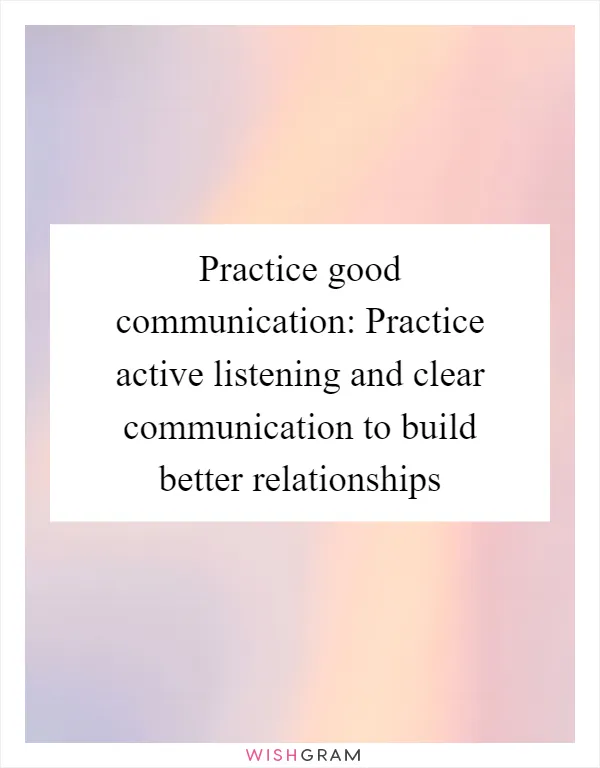Practice good communication: Practice active listening and clear communication to build better relationships
Good communication is essential for building strong and healthy relationships. By practicing active listening and clear communication, we can foster better connections with others. Active listening involves fully focusing on the speaker, paying attention to both their verbal and non-verbal cues. It means being present in the conversation and not getting distracted by our own thoughts or external factors.
To practice active listening, it is important to give the speaker our undivided attention. This means putting away our phones, turning off the TV, and eliminating any other distractions. By doing so, we show respect and demonstrate that we value what the speaker has to say. Additionally, maintaining eye contact and nodding occasionally can convey our engagement and understanding.
Clear communication is equally important in building relationships. It involves expressing our thoughts, feelings, and needs in a concise and understandable manner. Using simple and straightforward language helps ensure that our message is easily comprehensible. Avoiding jargon or complex terms can prevent confusion and misinterpretation.
When communicating, it is crucial to be mindful of our tone and body language. Non-verbal cues, such as facial expressions and gestures, can greatly impact how our message is received. By maintaining an open and friendly posture, we create a welcoming environment for the other person to express themselves. Additionally, using a calm and respectful tone can help prevent misunderstandings and conflicts.
Active listening and clear communication go hand in hand. When we actively listen to others, we can better understand their perspective and respond appropriately. It involves asking clarifying questions and paraphrasing to ensure that we have correctly understood the speaker's message. By doing so, we show that we value their input and are genuinely interested in what they have to say.
Building better relationships through good communication also requires empathy. Empathy involves putting ourselves in the other person's shoes and trying to understand their emotions and experiences. By showing empathy, we create a safe space for open and honest communication. It allows us to connect on a deeper level and build trust with others.
